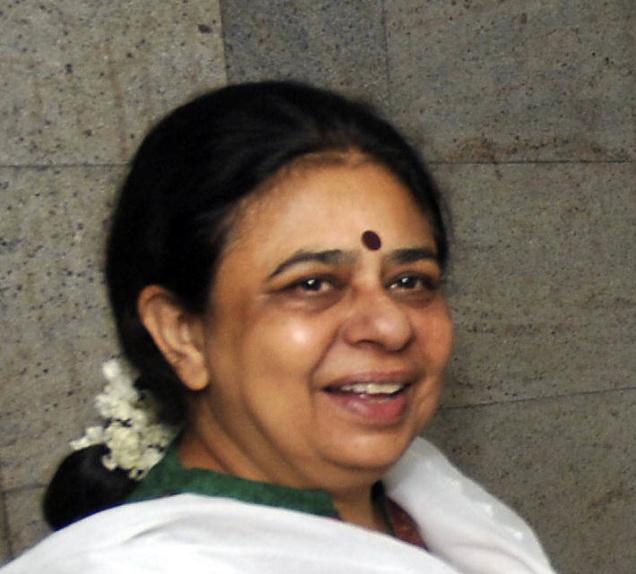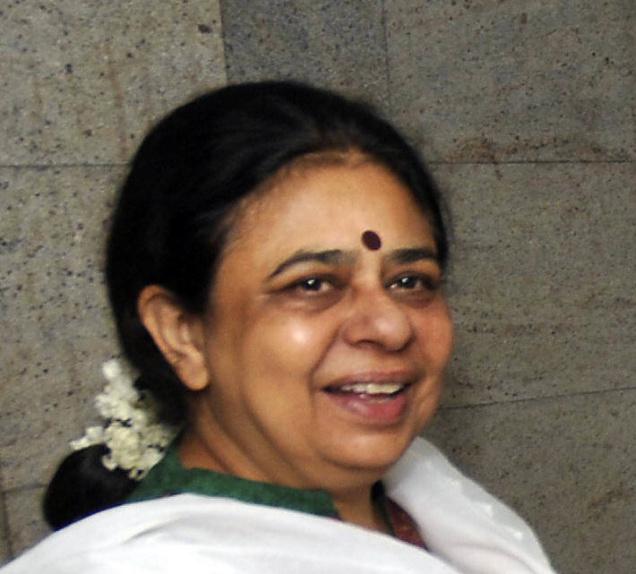What Women Want: The ability debates
-
Accessibility

9 April 2024
The triumphs and disasters of the differently-abled in India are two ends of the spectrum. Among the 70 million disabled in our country are those who have conquered peaks, won gold at the Paralympics, and raced in Himalayan and desert car rallies. But, millions more struggle to meet daily challenges in a society that tends to portray the disabled as either heroes or victims with little or no access to their rightful resources. The proposed amendments to the Copyright Act (1957) are seen as restrictive and discriminatory, as the copyright exception, which aims at allowing persons with disability easy access to copyrighted material, applies only to certain types of disability. We spoke to activists who address these issues, not as charity or welfare but as matters of development and dignity.
Change in attitude
National Trust’s programmes work on building capacity, changing patronising attitudes, building trust in the abilities of people with developmental disability and creating an equal playing field. Unfortunately, deeply entrenched attitudes continue to exclude people with disabilities. Even if an opportunity is given, it is given only once; if a person with disability fails, incapacity is assumed.
But, in the recent case of a young woman with intellectual disability who had been raped in a women’s home, the Supreme Court upheld her right to ‘choose’ to keep her baby, and she has proved to be a competent mother. However, the disapproval of the intelligentsia in the media is an indicator of the social prejudices people with disabilities have to live with.
Poonam Natarajan, Chairperson, National Trust (Ministry of Social Justice and Empowerment), New Delhi
Implement their rights
Ability Foundation’s thrust is on creating an equitable society. Through our magazine Success & Ability, we spread this message at a time when service to the disabled was seen only at the physical, and not at the emotional level. Persons with disabilities need access to inclusive education, employment and public places. Being ‘accounted’ in the Census 2011 will open up a plethora of possibilities. Accurate data will enable Government intervention at various levels, leading to proactive action. We need ramps for wheelchair users, audio announcements in bus / train stations for the visually-impaired, and video announcements for the hearing-impaired. Floor numbers in Braille for lifts, sign language interpreters in every hospital, police station and court of law, slip-proof flooring in malls, and large-print books in public libraries for those with low vision are the other needs. The implementation of the rights of persons with disabilities as per the United Nations convention and the Persons with Disabilities Act (PWD), in letter and spirit, is also essential.
Jaysheree Ravindran, Founder and Honorary Executive Director, Ability Foundation, Chennai
A development issue
My daughter Tamana was born with cerebral palsy. It pushed me to found an organisation in 1984 to fulfil the dreams of children with special needs and those of their parents. Therapy and counselling for children and their families is essential for optimum adult rehabilitation. Since Independence, the disabled have been categorised along with sections such as women, Scheduled Castes and Scheduled Tribes. While these have had powerful political lobbies, there has been no spokesperson for the disabled. The dichotomies between the Ministries of Education and Social Justice further worsen the exclusion. Most policy-makers look at disability as a welfare, not a development issue. Disability should be jointly addressed by the Ministries of Health, Women and Child Development, HRD, Social Justice and Empowerment. The definition of disability in the PWD Act does not include autism, which leaves out nearly two million autistic persons in India. Admitting disabled children in normal schools is not enough — you need to have professionally trained staff, who are sensitised. I also hope for a different curriculum for special children, even as they are being integrated in the mainstream. Better pay scales will also bring in more jobs in the disability sector.
Dr. Shyama Chona, President, Tamana, New Delhi
Public-private partnership
NGO-run establishments provide free schooling for disabled children. The Government has provided legislative intent through the Inclusive Education Act, which makes it mandatory to include all kinds of impaired children. However, Government schools that cater to the poor are generally marked by grossly inadequate infrastructure and teaching aids, so imagine the predicament of the disabled.
I would like a public-private partnership for day-care and residential institutions which provide educational and recreational service on a long-term basis. This needs to be supported by research institutions which focus on technology, communication and teaching aids. We need to benefit from global expertise, and customise them to local needs.
As Childline’s primary mandate is child protection, I feel that the Government must compulsorily provide for a child protection policy in any institution that deals with disabled children, as, such children are more vulnerable to abuse.
Kajol Menon, Executive Director, Childline India Foundation, Mumbai
The copyright angle
The Centre for Internet and Society is associated with the copyright amendment movement for persons with disabilities, and is one of the founding organisations for the Indian Right to Read campaign. At present, the proposed copyright amendment is detrimental to the disability sector’s needs. The exception extends only to ‘specially designed’ formats such as Braille and sign language, and does not benefit the millions who have cerebral palsy, dyslexia and low vision, and the visually-impaired persons who do not know Braille. Such persons require audio, reading material with large fonts and electronic texts, which are not ‘specially designed’ formats. For conversion to non-specialised formats, the amendment proposes a licensing system, which will permit only organisations working for the benefit of the disabled to undertake conversion and distribution. This will prevent educational institutions, SHGs, other NGOs and print-disabled individuals from undertaking conversion. The licensing system will also require approaching the Copyright Board for each work, which will be extremely time-consuming. The waiting period for obtaining permissions and subsequent conversion will result in students losing academic years, a violation of their right to education.
The proposed amendment violates the Constitutional guarantee of equality under Article 14 since it discriminates between those visually-impaired persons who know Braille and those print-disabled persons who do not. It is important for the nation as a whole to take the concern of persons with disabilities as a mainstream concern.
Nirmita Narasimhan, Programme Manager, Centre for Internet and Society, Bangalore
Read the original article in the Hindu
Legacy URL: https://cis-india.org/news/what-women-want
